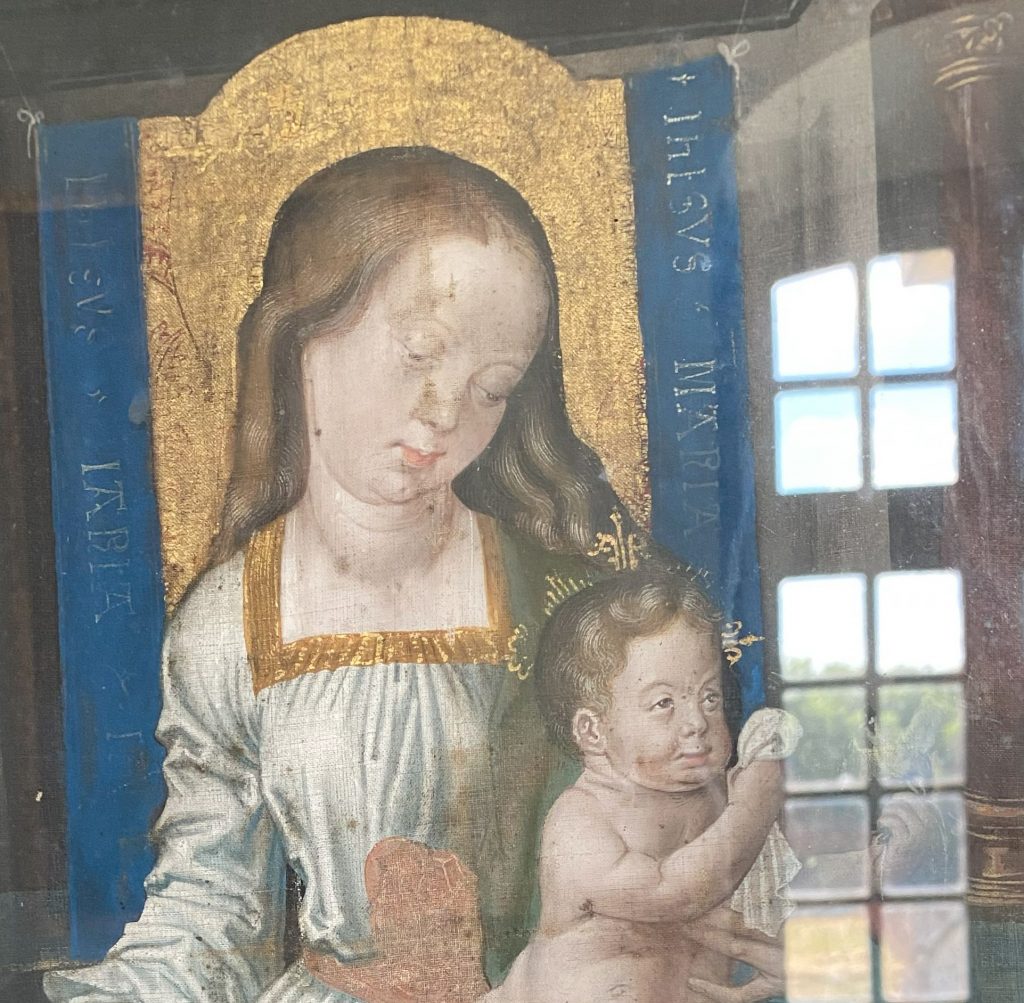The debate that later retirement of seniors reduces the hiring of youth has received new attention. Paul Mohnen published a paper on the “retirement slowdown on the US youth labor market” , which demonstrates this “crowding out effect”. Moreover, the recruitment of middle aged workers is also affected, as job changes slowed down for these age groups. The surprising finding is that higher skilled youth suffers the largest reduction in employment opportunities and become “pulled” into lower skilled jobs as jo offers for lower skilled persons remained high during the observation periods (until 2017!). This evidence suggests that the well-documented firm-level effect of fewer retirement means less recruitment holds also for society as a whole. Knowing that recruitment during a recession affects young workers more than persons already in employment, the macro level effects in 2025 will be rather unfavorable for young labor market entrants. (Image Frans Hals 1625, Odessa Museum in Berlin exhibition 2025). 
Robot repairs
Robots have been used mostly in industry for assembling, transport or sorting tasks. There is also a role in disassembling to enhance circularity. To repair electric or mechanic devices there is an enhanced version needed which starts with a diagnosis of the problem. Algorithms can sort out promising from dead end routes of repairs. However, the recognition of objects into things that can be repaired and those without repair potential is a worthwhile assistance. Beyond the economic and ecological rationale for repairs, there is an emotional or nostalgic sense to it as well. Maybe, from a life course perspective any object related to the teenager years of a person qualify for nostalgic value. Even simple robots or AI-assisted objects may qualify for this in future. Artificial friends will be like tamagotchis in need of repairs.

Robot assistant
Adjustment processes on the labour market take their time. This means that care workers are in short supply in most countries of the OECD. Engineers as well. There are so many robots, care robots I mean, still to develop that the shortage of engineers give little hope that we shall have affordable solutions in this area for the next few years. The issue is mainly about integrating and enhancing already existing solutions. If you are a mechanical engineer you can put together motorised mechanical pieces, small motorised electric devices and, for example, small infrared emitting and receiving devises.
All this is child’s play these days (see image below). The assembling of a small Robot assistant that follows movements or can escape from a small labyrinth makes such simple structures transparent for learners and users. There is nothing magical about it, just adding together small pieces and the electronic devices to steer the movements. The learning tool from KOSMOS has been on the market for 5 years. It is a helpful device to explain basics through hands-on experience. The limits of robotics equally become more evident. Our own health and safety is concerned with larger devices cohabiting with us. A robot assistant can take on easy tasks like to follow me through my living space in old age carrying a mobile phone, keys or an emergency device. More sophisticated tasks need more sensors and AI to train the most needed and best routines. For many years this needs our input and our control as well as supervision of such devices. Most robots will operate as assistants with us in the driving seat or the boss.
This is yet another element of the “all electric society“. We are moving towards the use of more electronics assisting us from year to year.

Kids Gaming
The pressure on children and their parents is high to succumb to the temptation of digital and online gaming. Albeit there are many funny and learning alternatives for them if they are accompanied by an instructor to build or invent their own game. With some adaptations it is possible to assemble for example a coordination game for children which directs a small ball through a labyrinth. Add speed and tricky holes to the “parcour” and the race is on. It is little bit like hands-on physics as the speed and acceleration patterns across the parcour varies a lot. Planning, building and playing are an ensemble in this simple game. Probably also more fun than the x-th repetition of a digital game.
(Inspiration from: Berliner Kultur gestalten, workshops for children).

Bilingual Plus not WEIRD
The scientific literature on bilingual learning and living experience is abundant. Positive cognitive and social inclusion effects dominate the results. The scientific research has moved on to more tricky questions of bilingualism which shifts gear to multilingual learning. Many people and children are bilingual plus additional contacts to another or several other languages. Multilinguism has been of interest for several scientific disciplines. The effects on cognitive development have received a lot of attention. In order to achieve further progress in the study of multilingual development, it is instructive to move beyond bilingualism and the WEIRD particiants in most psychological studies (WEIRD = Western, Educated, Industrialized, Rich and Democratic). The paper by Omane, Benders & Boll-Avetisyan (DOI) takes this as a starting point and investigates the experience of infants with 2-6 languages.
They establish a protocol how to record the surrounding languages in a structured way. A major distinction into direct and indirect exposure to languages is a major finding. The example from Ghana provides a useful basis for other studies of multilingual experiences. A correct recording of different language inputs in time and of the sources is at the basis for later measurements of effects of different kinds of exposure and intensity of exposure.
(Image: Children’s room in Berlin Museum Martin Gropius Bau 2025) 
Suicide Prevention
The annual mortality statistics and special reports on suicidal tendencies are a tough reading. OECD Statistics give a at least an approximate, comparative perspective. Reporting routines and medical confirmation of a suicide or suicidal behavior still vary quite a bit between countries. Nevertheless, the usually reported incidents per 100.000 persons remain rather abstract.
Absolute numbers speak a clear language. For example in Germany there were about 10.300 recorded suicides in 2023, France had to mourn about 9200 in 2022. To put the size of the problem in perspective it is helpful to know that in Germany all other not aging related causes of death like traffic accidents, drugs or murder make up for around 7.000 deaths per year. The targeting of resources and prevention efforts on these vulnerable people seems inevitable. However, we see only limited additional efforts to curb the problem.
A more detailed analysis of the frequencies reveals the gender and age differences. More men commit suicides and older (very old) people have higher risks. The oldest age group of men is most at risk.
Since the Covid-19 pandemic young women show rising trends in many countries again of suicidal attempts and self-inflicted wounds. Despite a continuing effort of research (Links) there is no single cause to explain the occurrences.
As a working hypothesis, which awaits empirical tests, I would look into societal factors that stigmatize persons who are made to believe or feel like they are beyond the normal spectrum of society. The lack of acceptance of diversity concerning gender, age, ethnicity, body shapes or mental states like anxiety. Poverty might cause immense distress and suffering. Large shifts in wealth in both directions cause additional risks.
It seems as if our minds and society are constantly in a kind of „regression towards the mean“ posing challenges to those furthest away from the average or perceived norms. Percentile ranks or percentile scores are commonly used to express a person’s position in a frequency distribution. For example you are better/lower than 90% of persons of your age group. Such statements might cause further distress for persons. However, summarising across several (psychological) measurements, they may yield encouraging indications as well. Actual and perceived positions in such percentile ranks add another “social risk” as perceived positions may govern behavior. 
Generational differences
The study of generational differences has a long tradition in sociology. A recent study by Wysmulek et al. (Acta Sociologica 2024, 131pp). highlights changes in how youth values education, abilities and hard work. The study carried out with Polish data shows that it is not the straightforward historical grouping of birth cohorts that matters most, but the experience of living through a period of crisis or stability during the formation of so-called meritocratic beliefs. Once formed, these beliefs tend to persist for prolonged periods of time well into middle and late adulthood.
Many judgements about young people might suffer a substantial generational bias when viewed from another generation’s vantage point. Cross-generational differences in beliefs and behavior are dependent on homogeneous or heterogeneous experiences of the respective generations. Disrespect of such generational differences is bound to yield severe misunderstandings. Who told you that social life was easy anyway? (Image decorated piano in shopping mall, Berlin 2024)

Sandbox Games
Children from a very early age onwards play strategic games. Even in the sandbox we can learn from surprising talents of how to get the shovel from the other player(s). Having grown up a bit the repertoire of strategies becomes a bit more sophisticated, but most children tend to apply the same ones now and then. For example, to obtain one of the always scarce places on the swing or the balance, you may reach your goal in attracting the occupant(s) to a supposed even more exciting object on the playground or outside of it. Once the occupants leave the swing to join you somewhere else, you rush back to the swing and hope that the other child(ren)/parents are not more powerful to take back the swing. Strategies on the playground are abundant. Most children run, or get run, through the full set of tricky strategies during their youth. If you still want to learn more, study economics (typical economist’s joke). Alternatively, if you like strategies claiming that other children are not following the rules or want to know how best to fix the rules so you’re going to win anyway, study law (lawyer’s jokes). If you believe fairness is your real best argument study sociology, philosophy or theology. Make sure most other people in the playground have a similar set of strategies otherwise fists and tears will be gaining the upper hand. 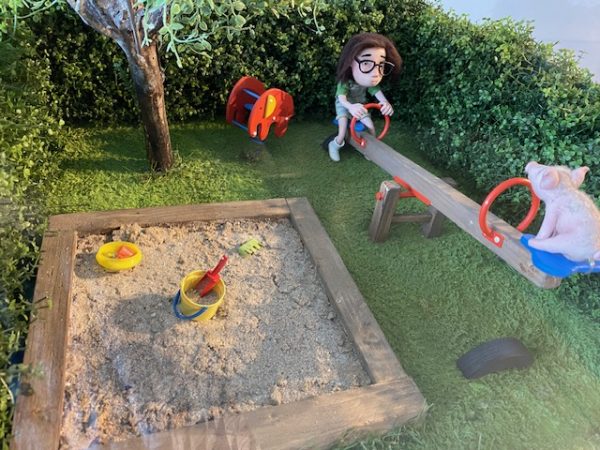
Family Music Days
Kids are queens, kings and princesses as well as princes at the family music days in Berlin at the FEZ. Kids can enjoy the full spectrum of musical experiences from just listening to playing themselves, if they feel like it or dare to risk a sound. Just making noise is okay, too. Building your very own version of a musical instrument is a great learning experience for the young. To make music it doesn’t always have to be an expensive instrument. Your own imagination assisted by persons with patience and passion creates marvelous sound experiences. Initiating kids to the endless worlds of sound is having lasting effects on them. Great to see a concert hall full of young enthusiasts. Learning is so much fun, if taught in accessible and inclusive ways. Professional instructors joined by many volunteers make the world go round for kids. Wish you we here. Let’s spread the message.
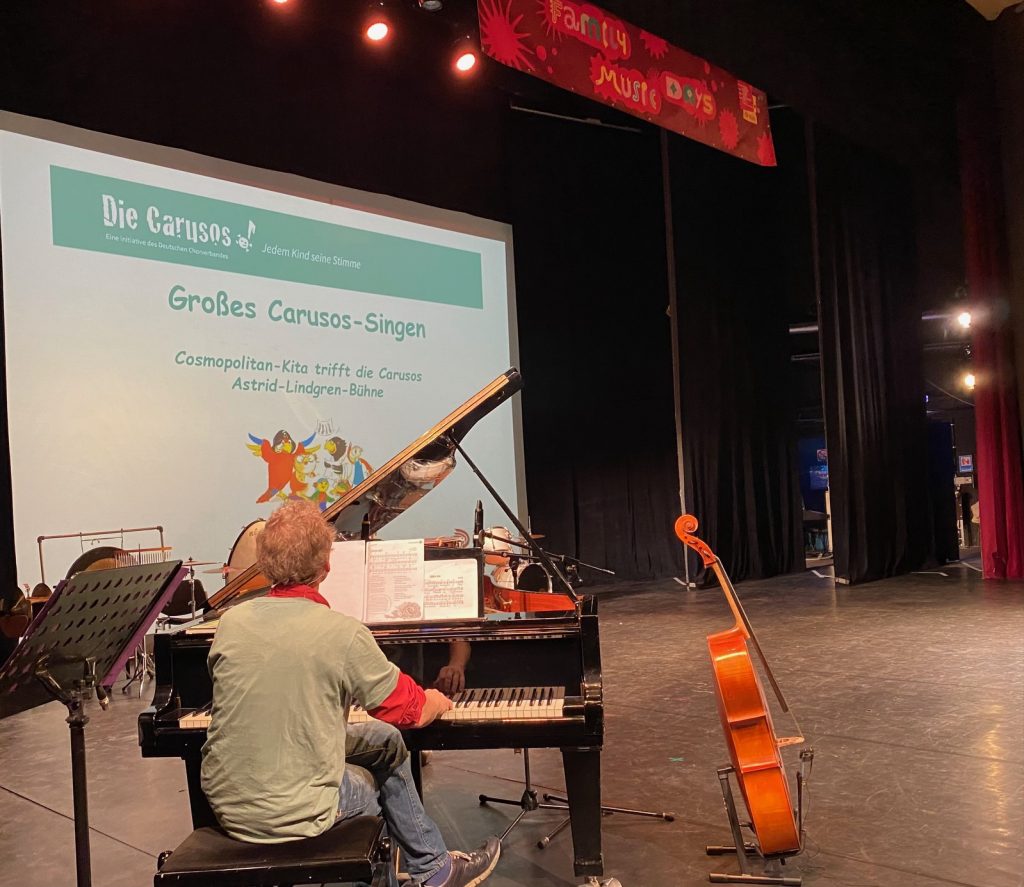
Kriegskinder
Sabine Bode hat bereits in 2004 eine ausführliche Beschreibung und Berichterstattung zu Interviews mit den Kriegskindern, den 1930-1945 geborenen, vorgelegt. Die meisten haben lange, lange geschwiegen doch es ist ihr damals gelungen, einige aufschlussreiche Gespräche zu führen. Diese lassen sich mit den sehr unterschiedlichen Schicksalen nachlesen. Die vergessene Generation als Titel könnte vielleicht sogar treffender heißen die vergessende Generation. Die Verdrängung von unangenehmen historischen Wahrheiten wurde zu einem Dogma erhoben. Sabine Bode schreibt bereits in der Einführung: „Nun ist ja bekannt, dass Kinder auch extreme Lebensumstände hinnehmen, wie sie sind. … bis es mit den Normen der Aussenwelt in Kontakt kommt.“ (S.17). Erstaunlich aus heutiger Sicht ist laut Bode auch das Festhalten an „eigentlich unpassenden Gefühlen“ auch viele Jahre sogar Jahrzehnten danach noch als normal fanden und einige noch finden.
Sehr treffend formuliert es Sabine Bode, dass es weiterhin eine äußerst beunruhigende Angelegenheit ist, über die Erfahrungen zu sprechen. „Die Antworten liegen unter der Last von Schuld und Scham begraben, als Folge der Naziverbrechen, des Holocaust.“ Oft wird eine quasi Normalität berichtet, die jedoch in keinster Weise als solche von späteren Generationen so gesehen wird. Dieser Diskrepanz sollte sich mehr Aufklärung und Literatur widmen. Philip Sand hat dazu eine gute Abhandlung verfasst, die auch die Erlebnisse der Kriegskinder einschließt. Das laute Schweigen von Millionen von Kriegskindern bis hin zum Verdrängen und Beschönigen des Verhaltens ihrer Eltern vor und während der Kriegsjahre befremdet nachwachsende Generationen. Gerade das häufigere Verbreiten von menschenverachtenden Naziparolen im 21. Jahrhundert verlangt eine entschiedenere Aufarbeitung der Verbrechen und wie es dazu kommen konnte. Schließlich wurden aus vielen dieser Kriegskinder dann die Nachkriegseltern wurden.
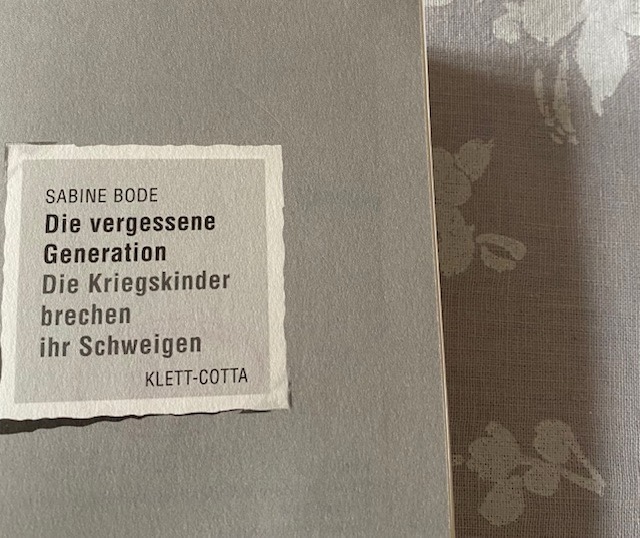
Gespenster
Passend zu dem alljährlichen Hype und Kommerz zu Halloween Ende Oktober, öffnet die Sonderausstellung zu Otfried Preußlers 100. Geburtstag. „Die kleine Hexe“, Das kleine Gespenst“, „Der Räuber Hotzenplotz“ oder seine deutsche Übersetzung des Kater Mikesch haben mehrere Generationen von Kindern und Eltern begleitet. Fantastische Geschichten haben bereits seit langer Zeit Kinder begeistert. Eine gute Hexe und ein liebenswürdiger, eigentlich ungefährlicher Räuber passen in die kindliche Vorstellungswelt. Lange vor dem Spektakel um die Meerjungfrauen, hatte Otfried Preußler den kleinen Wassermann erstehen lassen. Diese Geschichten machten Otfried Preußler zu dem erfolgreichsten deutschsprachigen Geschichtenerzähler nicht nur für Kinder. Ein Glück, dass der Nachlass seit ça 10 Jahren in der Stabi Berlin aufbewahrt wird. Es hat sich bereits ein reges Besucherinteresse eingestellt, denn die Bilder zu den Geschichten haben sich tief in das Gedächtnis von Kindern und Eltern eingegraben.
Die vielfältig zusammengestellte Ausstellung bietet abwechslungsreiches, unterhaltsames und hintergründiges Material, um den Werdegang und Schaffensprozess des Schriftstellers zu verdeutlichen. Die liebenswerten Figuren der bekanntesten Werke wurden in viele Sprachen übersetzt. Verwertungen von der Augsburger Puppenkiste bis zu den Fernseh- und Kinofilmen in späteren Jahren haben die Geschichten mit ihren liebenswerten Charakteren ein bleibendes Kulturgut werden lassen. Mit den dunkleren Kapiteln seiner Vergangenheit hat er sich ebenfalls in seiner Geschichte „Krabat“ auseinandergesetzt, die jedoch viel weniger bekannt ist. Das Verdienst dieser Ausstellung ist jenseits der emotionalen Verbindung zu den Geschichten Otfried Preußlers, Hintergründe zu beleuchten. Nach anfänglichem Misserfolg, Ablehnung eines Verlags, dann 9 Monate warten bis ein positiver Bescheid eines anderen Verlags vorliegt, entschied sich der Leiter einer Volksschule seinen Lehrerberuf in gesicherter Anstellung aufzugeben. Mit seinen Kinderbüchern hat er unzählig viele Kinder mehr erreicht. (Link zur Ausstellung online Material) 
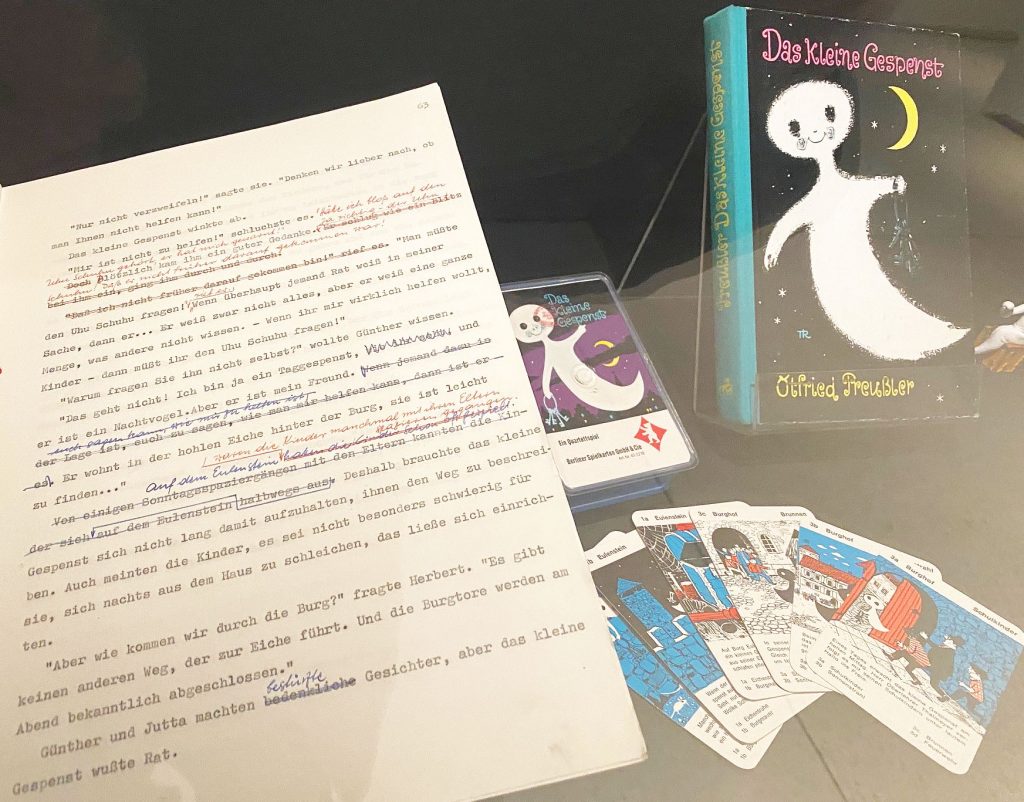
Youth Reserve
As the Russian aggression in Ukraine continues its war in Ukraine, it is important to analyse the impact of the prolonged war. Certainly, Russia underestimated the length of the war in the first place. We shall be soon in the 20th months of the aggression. It is not only an aggression on Ukraine territory and Ukrainians, but also a disaster for all those fighting on Russia’s side. Many young recruits to the army did not expect to be drawn up and be compelled to fight on front lines of a war. Most of these young people will not even really why they are risking their life. Russian imperialistic behaviour is not what they imagined to be their future role.
Putin has changed the story book of millions of youth, for those of the soldiers and those who left the country in time to evade been pulled into the horrors of war. With so many months passing while at war, each birth cohort of Russians completing their schooling and serving in the military will face existential threats to their very survival. It is likely to be a lost generation that cannot think of other opportunities rather than passing through the hierarchies of the military ranks. It was not their war at the beginning, but Putin and the old military commanders who are responsible for the mess, but youth pays the highest price in terms of foregone other professional careers and development rather than death or mutilation.
The defence by Ukrainians with better equipment arriving day by day is likely to increase the losses of the Russians, where many still do not know why they are sent to fight. The price for Russia to pay for the aggression is rising every day Ukraine manages to defend itself. Other countries in the neighbourhood of Russia were very surprised of the ruthless imperialist approach by Russia. They stepped up their defences considerably to guard against another extension of the conflict. The toll is on youth even beyond Russia and Ukraine. 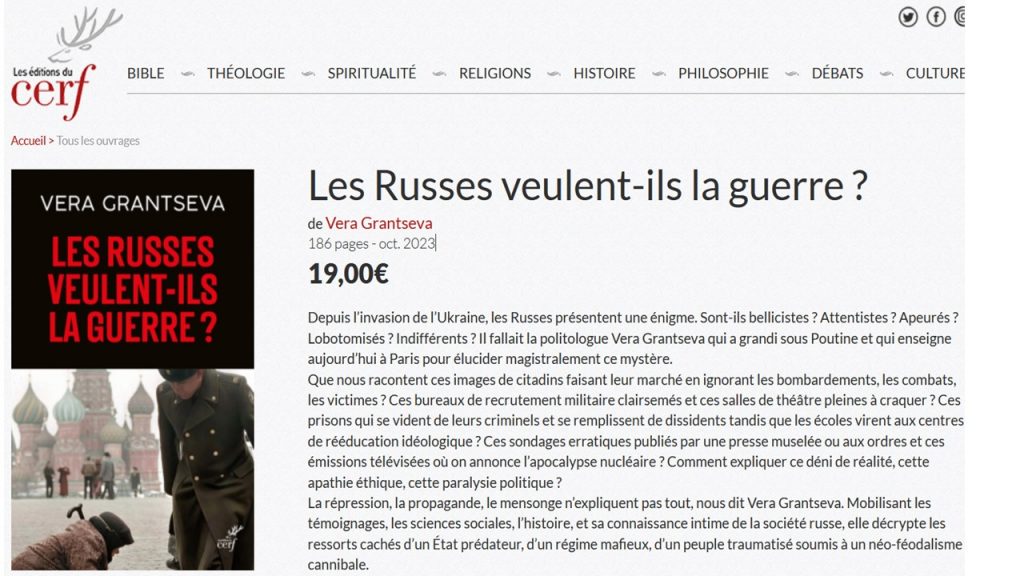
Bücherverbrennung1933
AutorInnen sind nicht nur eine seltene Spezies. Es ist auch eine gefährdete Art. Die Macht des geschriebenen Wortes wird und wurde seit langem von Diktatoren und Autokraten gefürchtet. Dabei sind die Nationalsozialisten besonders zu erwähnen. Auf der Frankfurter Buchmesse in 2023 gibt es wieder eine Präsentation und kleine Ausstellung dazu. Unter dem Titel „Verbrannte Orte“ kann online recherchiert werden, an welchen genauen Orten die abscheulichen Vorboten von noch viel größeren Verbrechen begangen wurden. Bereits 3 Monate nach der Machtübernahme zelebrierten die Verächter der freien Meinungsäußerung mit den Bücherverbrennungen Einschüchterungsversuche. Auch im Jahr 2023 bleibt das eine Mahnung, früher und entschiedener gegen solche Taten einzuschreiten. Auf der Internetseite „Verbrannte-Orte“ ist eine Karte der gelisteten Bücherverbrennungen verfügbar. Beispielsweise für Erlangen bei Nürnberg zeigt die Karte den Schloßplatz nahe den medizinischen Instituten als Tatort (siehe unten). Mit seiner beträchtlichen Anzahl von gewaltbereiten, schlagenden Studentenverbindungen in den 1930er Jahren ist das wenig überraschend. Dazu findet sich heute zumindest eine Plakette dort, die an diese Schandtaten erinnert.
Wenn Frankfurt wieder die Neuheiten auf dem Büchermarkt feiert, sind wir froh die Internationalität und Toleranz zu feiern. Auf dem Römerberg in Frankfurt befindet sich ebenfalls eine Plakette, die die Erinnerung an diese von Studenten vielfach ausgehenden und befeuerten, hässlichen Aktionen wachhält. Strafrechtliche Konsequenzen müssten wohl erst noch genauer recherchiert werden. Da scheint die Rechtsprechung noch nicht viel weiter entwickelt zu sein. Verletzungen des copyrights bei Büchern wird verfolgt, aber eine öffentlich verrichtete Verbrennung befindet sich in einer juristischen Grauzone. Für die Verbrennung des Korans in Schweden wurden zeitverzögert 2 unschuldige schwedische Fußballfans von einem islamistischen Fanatiker ermordet. Hass schürt weiteren Hass. Daran hat sich in den 90 Jahren seit den Bücherverbrennungen in Deutschland wenig geändert. Die Schauplätze ändern sich. Eine Wiederkehr auch nach Deutschland kann überhaupt nicht ausgeschlossen werden, da das gewaltbereite, rechtsextreme Spektrum weiterhin wächst.
Quelle: Julius H. Schoeps (Hrsg.); Werner Treß (Hrsg.): Orte der Bücherverbrennungen in Deutschland 1933; Olms Verlag; 2008; ISBN: 978-3-487-13660-8. Image: Erlangen in Verzeichnis „Verbrannte-Orte“. 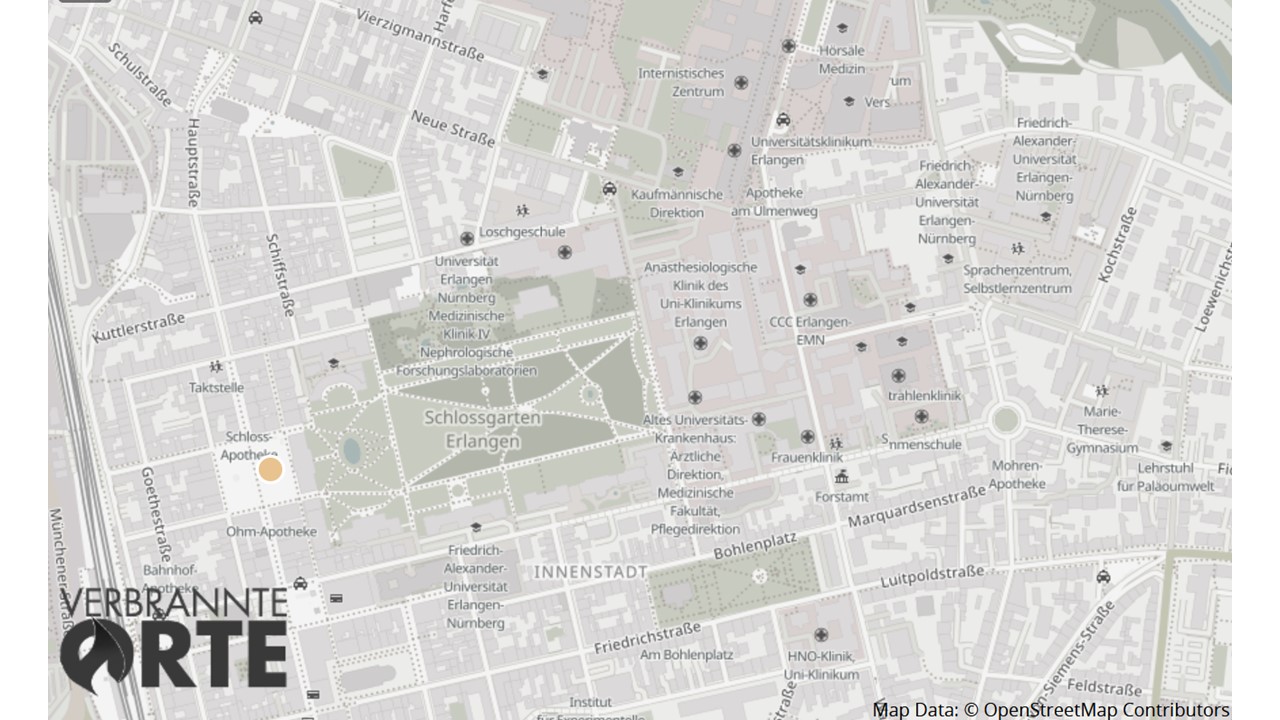
Heidi
Neben dem Kassenschlager des neuen Barbie Films lebt ein anderer Mythos der Mädchenjahre weiter. Die in der Nähe von Zurich im Kanton Graubünden gebürtige Schriftstellerin Johanna Spyri hatte zwei Bücher mit Kindergeschichten im 19. Jahrhundert mit Namen Heidi verfasst. Dieser Ausgangspunkt bot zahlreichen Verfilmungen eine verwertbare Basis. Die Geschichten der kleinen Heidi wurden überraschenderweise von Filmstudios in Japan zu dem Welterfolg 1974 im Animé Format geschaffen.
Computer Animationen sind nichts Neues, und statt aus Japan kommen viele nun auch aus Südkorea. Outsourcing zur Gewinnmaximierung war schon immer ein verlässliche, gewinnorientierte Produktionsmöglichkeit. Lediglich für so etwas wie Kulturgüter glaubten wir, wäre das nicht so einfach. Filmrechte werden gehandelt wie andere Waren. Hohe Einschaltquoten werden uns noch mehr Heidis und Barbies im Filmformat bringen. Das werden wir aushalten müssen.
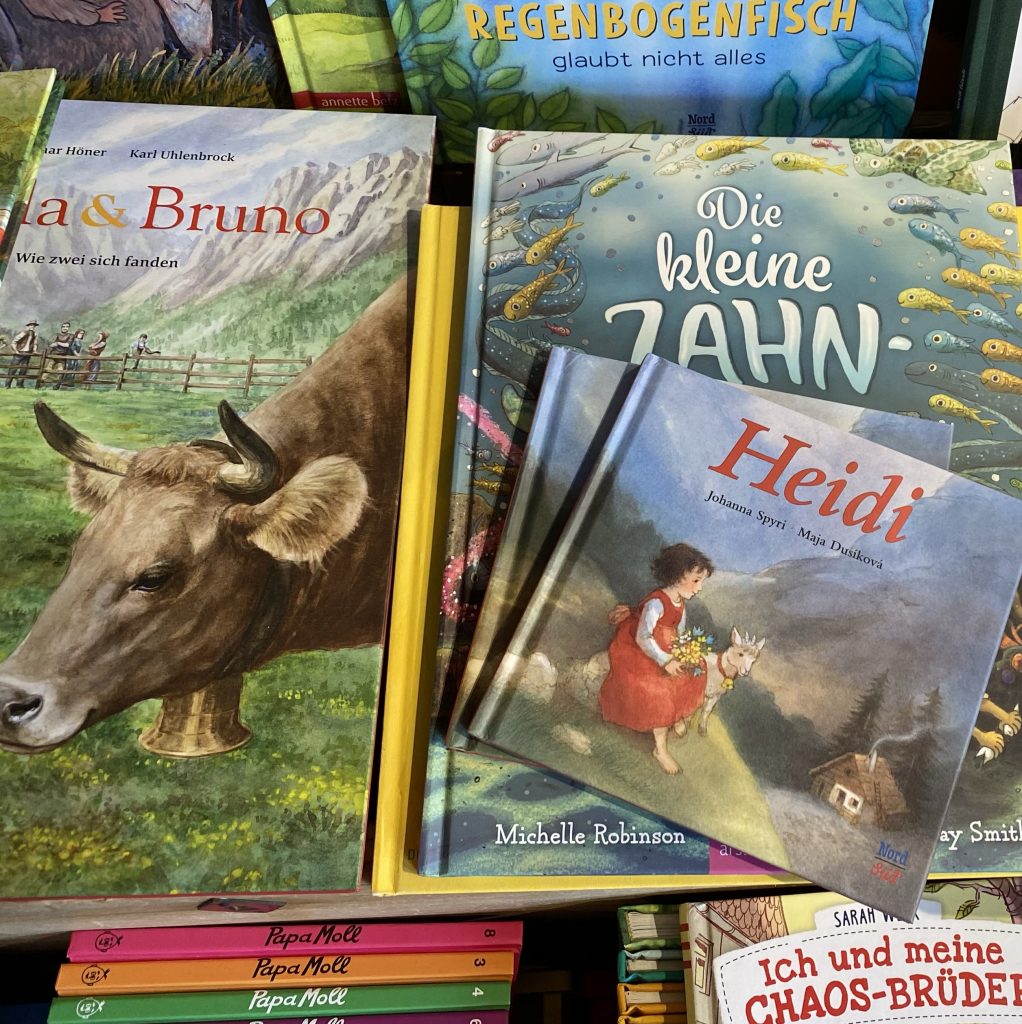
Youth
Youth has a right to personal development. Nature is full of visual examples of the uneasy process of personal development. The Swan needs to find the right time to get rid of the feathers that protected it during the process of growing-up. Seasonal patterns of changing clothes are also widely spread. These transistions might constitute real transformations as well. Parents usually accompany their upsprings during this process, without equal distribution of responsibilities for most animals. Pedagogic approaches to personal development are a vast area of research and popular advice. To the best of my knowledge, the process works out fine with the highest amount of freedom left to the person growing up. A tricky role of guidance or coaching is left to parents, single or jointly. Not intervening too much, not too much of laissez-faire is calling to find the right balance.
The challenge to most research and practice in the field of learning is the largely underestimated role of peers in the process of growing up. Parents tend to monitor rather critically the intrusion of outsiders into the parent-child relationship. Yet, the preparation for socialising with others is one of the most important elements of growing up in the 21th century. Communities have globalised even in tiny social, local settings. Guidance more than interference is called for. Being anxious is part of the job description for becoming and being a parent. However, anxiety is a major impedement for personal as well as social development. “Keep calm and carry on” is not too bad as a guiding principle. 
Triangle without words
There are many forms of triangles. Jacques Pain (2000, pp.121-136) adds another one. “Jeunes, banlieue, école : le triangle sans parole” (Youth, suburb, school : the triangle without voice). He calls it a symbolic, sensitive triangle which is confronted with mounting difficulties from inside as well as external pressure. Pain describes and analyses the violence that emanates from the triangle.
Additionally, the triangle appears to be spiralling upwards causing mounting pressure on the social fabric of whole societies. Education systems have to deliver sufficient numbers of youth ready for insertion into the labour market, ready to accept the subordination to hierarchical structures while at the same time being confronted with high social contributions to other parts of society and unrepairable environmental damage and depletion of resources by older generations. With high interest rates even the middle-class dream of a house with garden is out of reach for almost all of the young growing up in suburbs, disadvantaged schools with pervasive violence. Dealing drugs or taking drugs has become pervasive and an entry port into the violence of law in addition to the violence of the street, school or even home.
Give the triangle a voice. Call the names of the victims so that politicians do not forget all too quickly what is their duty to guarantee – a youth free of violence and a youth with an equal chance for learning. Free from violence, but free to learn or be given a chance to find your way into society at large not only restrained to your suburb.
Reference to the historic riots of the mid-1960s (Saul Bernstein, 1967, p. 27) and the recent Paris riot statistics from July 2023 suggest that history doesn’t repeat itself, but it seems to rhyme. A breaking of the silent triangle is like an eruption of a volcano. Violence is all over the place and leaves a lot of burned land and people. Cohort effects might prolong the suffering further throughout their life courses. Stigmatisation is likely reinforced rather than overcome. For the so-called holy trinity there were many words and songs. The modern triangle within society is still in search of the right wording, although rap-music is shouting loud about “la misère du monde”, only we are not really listening. 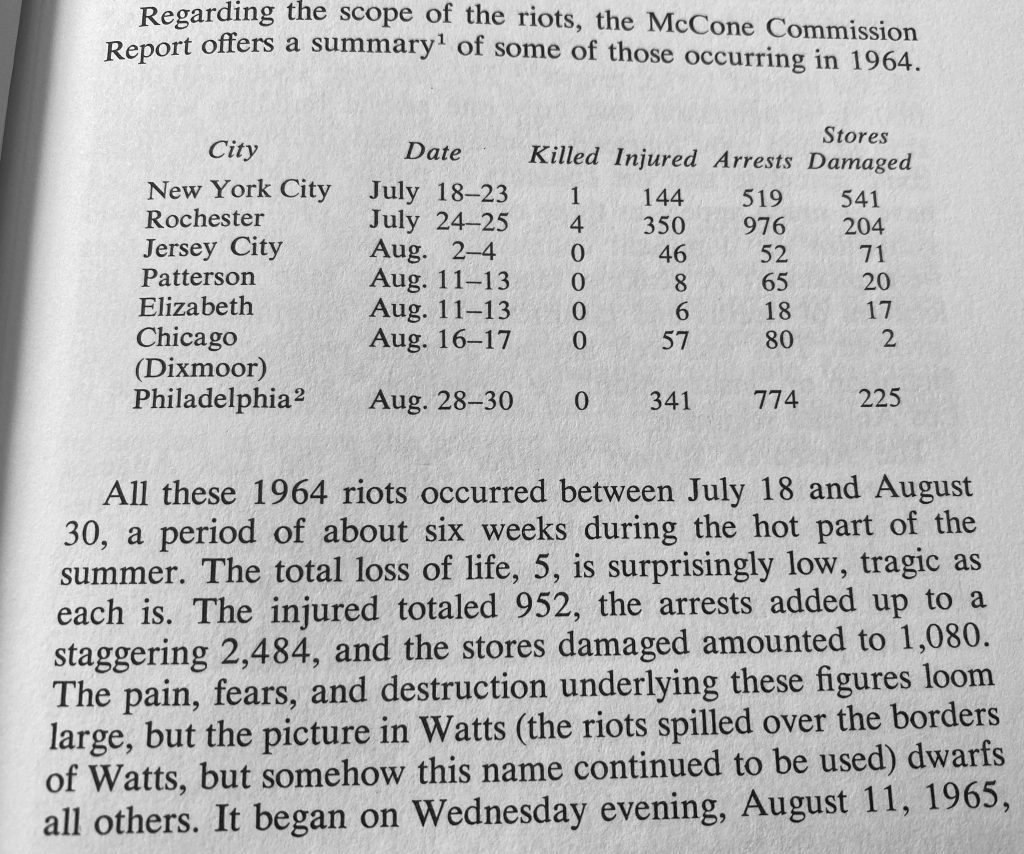
Police Violence
As a test of the viability of ChatGPT you might enter Police Violence. What you get in return is just a summary of some nice newspaper-ike editorial of a polite statement that this is a problem about everywhere and that the division of power will take care of it eventually. This is an unfair summary, but it highlights the risk of too many conservative editorialists in Europe that do not dare to take sides of the innocent youth that is at a permanent risk of police violence due them living on the margins of our modern, fast-moving societies that do not allow for lifestyles off-the-normal “protestant work ethic”.
Perceptions of what is fun and what is serious differ within societies, particularly between generations. Baby boomers have known and many experienced unemployment. Youth today has “precarious jobs” just around the corner. But just having “any” job without any career potential or, at best, on the minimum wage is no longer enough. Social media show that there is much more to life than just a 8-5 normal job. High-streets are full of marketing tricks that solicit people into spending without cross-checking their red lines.
Police and the flourishing private security sector are then charged to ensure that boundaries of financial and spending power are respected. This is exactly where the capitalist market economy fails the people. Without a tough police, ensuring property rights, the system cannot survive. Social market economies claim to soften the borders between have-nots and have-too-much. This needs permanent readjustment. That is where many of our social market economies have failed the poor and even middle-class people threatened with economic and status decline (latest at time of retirement).
Reactions may turn out violent, and again, the police is sent in to “stop” violence. As it turns out police, being abused as “political weapon”, may then become overly violent as well. Not as an overall force, but specific units or just several individual persons who have been trained in anti-terror exercises and have “a license to kill” (007). French legislation has recently facilitated the use of guns to impose the monopoly of power. The probability of who constitutes a potential target might be interpreted by the police itself. A threatening situation is perceived differently by different persons. Too much room for interpretation.
The image of the French superpower that is threatened by a 17-year-old youngster is not credible. It is time to sharpen the control of the police also in France. ChatGPT only on special addition includes the social movement of “Black lives matter” in the return on police violence. If you know the topic you can make use of the AI tools in drafting on police violence for example. Rather than to spend billions on fancy Olympic Games in preparation for Paris 2024, youth programmes would be much better investments in the medium and long run.
Tourists cancel visits to Paris and France in masses already. That is probably the only lesson that receives sufficient attention in the current government and may lead to better control of violence not from some pick-pockets, but from the police as well. 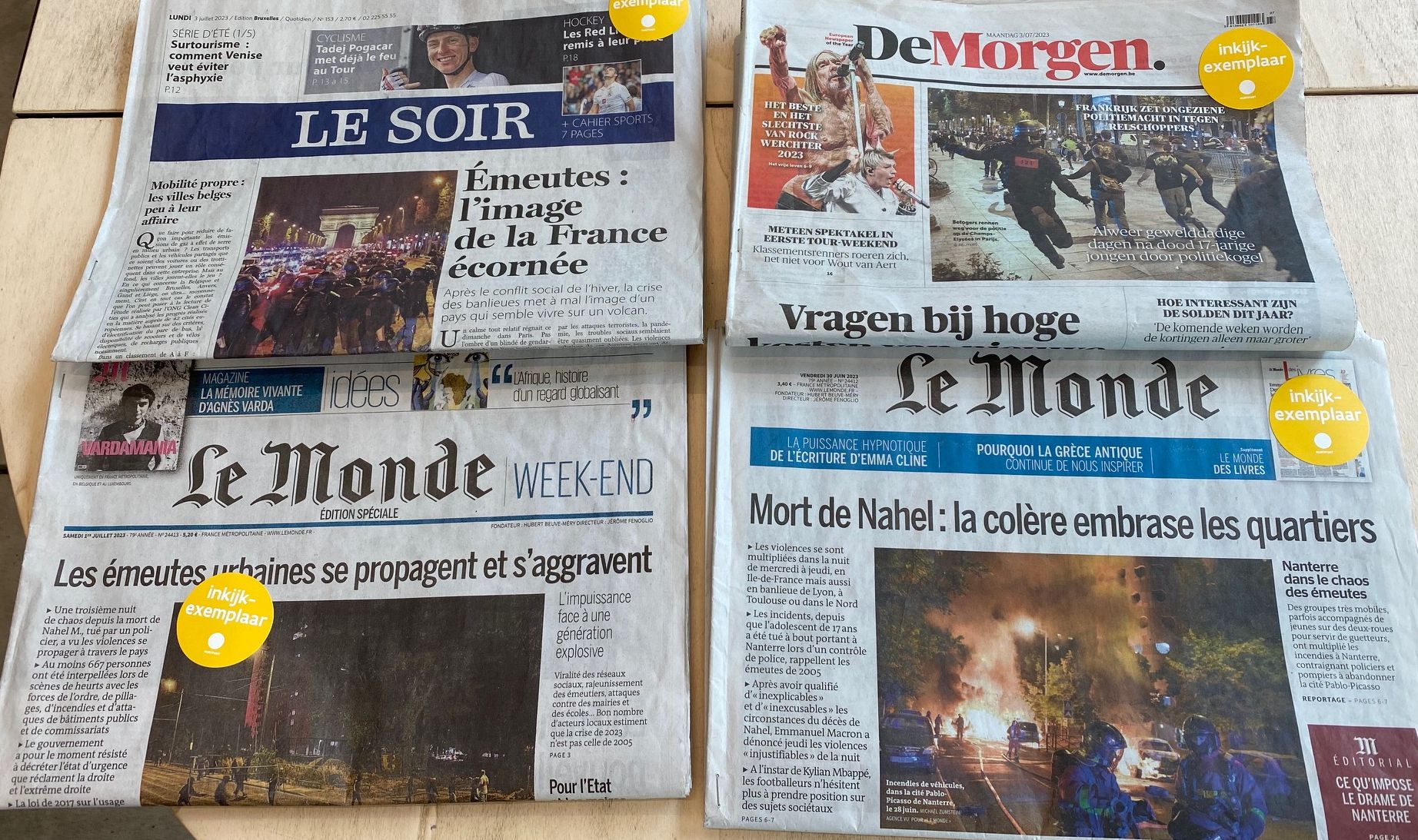
Avers
Der kurze Titel „Avers“ der Sammlung von Novellen des Autors J.M.G.Le Clézio lässt keine Wundergeschichten erwarten. Der kleingedruckte Untertitel „Des nouvelles des indésiables“ noch weniger. Dennoch, aus der Sammlung von Kurzgeschichten werden die kleinen Heldinnen und Helden des Überlebens in unserer komplexen Welt vorgestellt. Mal mit, oft ohne „Happy End“ werden Kinderschicksale erzählt, die uns nachhaltig berühren. Schule ist für die kleinen Helden ein Fremdwort. Der tägliche Überlebenskampf für Nahrung, Gefahr von Kinderarbeit, einfach in Ruhe gelassen werden oder dem Krieg zu entkommen, steht im Vordergrund. Fluchtwege wäre für mich ein möglicher Titel einer deutschen Übersetzung. Flucht vor Missbrauch und die Brutalität des Alltags in Kriegsgebieten sollten uns sensibilisieren für „la Misère du Monde“.
Die unerwünschten Novellen von Le Clézio kommen auf leisen Sohlen oder eher barfuß daher. Sie lassen uns die ständige Herausforderung der Humanität spüren. Menschen, Kindern, Menschenwürde ermöglichen, ist nach wie vor eine riesige Aufgabe. Der Ansatz an konkreten Schicksalen aufzuzeigen, wie wenig es oft braucht, damit Kinder eine faire Chance bekommen, muss uns aufhorchen lassen. Obdachlose werden bei Le Clézio zu „fantômes dans la rue“. Wir ignorieren ihre Präsenz allzu gerne.
Nach 60 Jahren Heinrich Böll „Ansichten eines Clowns“ rütteln uns die Novellen von Le Clézio wieder wach. Wirkliche Humanität braucht uns alle und das ständig, nicht nur sonntags. Aversionen ablegen und sich dem Unerwünschten zuwenden, das fordert den ganzen Menschen. Überforderung gilt nicht als Gegenargument. Wir sind viele, helfen wir. (Image: Extrait, Atelier Albrecht Dürer um 1500).